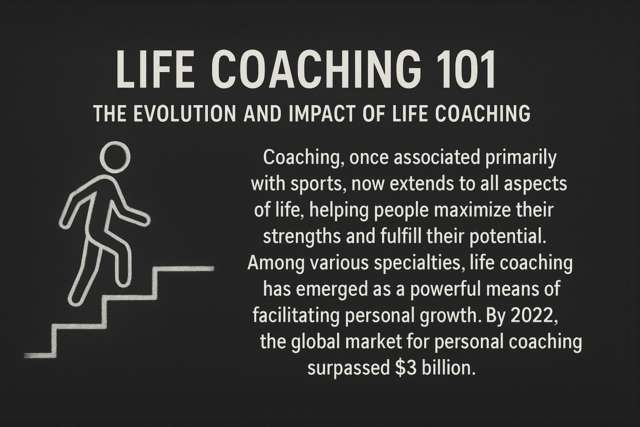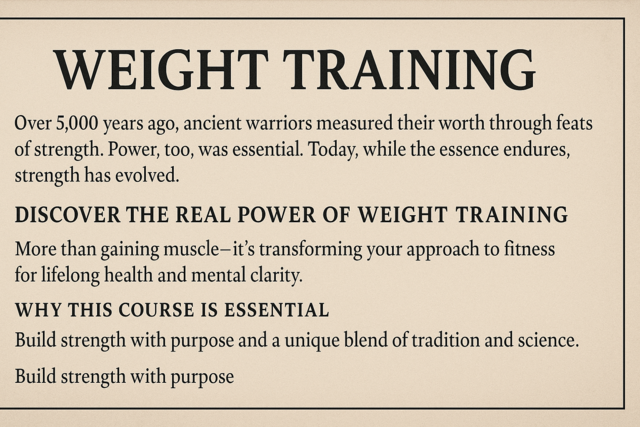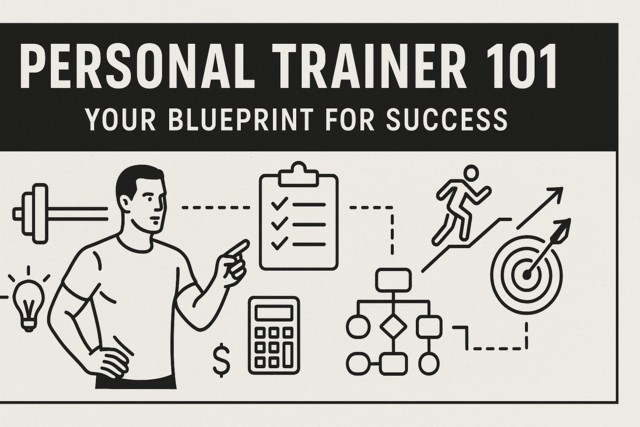Introduction:
A personal trainer is not an athletic trainer. A personal trainer can work with people of any age in strength conditioning, cardiovascular exercise, the physiology of muscles which includes stretching and an ability to lead groups in classes, motivation, and physical fitness. These can all be learned through a short specialized certification program on-line. To become an athletic trainer requires an in-depth program that is heavily integrated with medical science and culminates with at least a bachelor's degree. In this specific course you will learn what is required of a professional personal trainer.
The pay scale of a professional personal trainer ranges from $30,000 to over $70,000 depending upon your location, your development of skills, and the amount of work you are willing to do. The average trainer earns about $18.00 an hour. This industry is growing rapidly and is predicted to further expand and grow as people become more aware of the benefits a personal trainer provides. A professional personal trainer can work for a fitness business, own his own business or freelance, hiring yourself out to individuals, businesses, group homes for specialized needs, and companies. As an entrepreneur you can invent yourself in many ways if you are creative. The opportunities are limitless, the cost minimal and the health benefits spectacular. In this article you will focus on your goals, wants and needs, skills and motivation.
A. Personal Trainer Skills: Skills needed to become a personal trainer are spread across several areas. A personal trainer must have great people skills, some business acumen, self-management abilities, drive, a strong work ethic, and good health.
The job of a professional personal trainer is to work directly with people, sometimes one on one and sometimes as a group to increase fitness in various ways. Your ability to motivate others, express genuine concern for their needs and to listen cannot be overstated. A person is your job. A person is your livelihood. People are the reason you go to work. Paying personal attention to individuals and his training will reap rewards. Conducting yourself as a professional and having knowledge and the ability to communicate with your clients is the way you not only stay in business, but grow your business.
The ability to understand scheduling, billing, setting fees and financial balance, keeping good records and being aware of laws and requirements of your area will sustain your ability to run a smooth and successful business. If your skills in this are less than average, you have choices. You can hire an accountant, a manager, take a class in basic business practices, or go on line and download some programs to guide you. Your banker, your librarian, the small business association, a community college, and quite possibly a family member might give you a bit of their time to help you out as you go.
Self-management skills keep your business running smoothly and your clients happy. Being on time, knowing what your client requires, having the right equipment, space, and creating an atmosphere that is welcoming and relaxing take exceptional management. You have to have systems in place for scheduling, finances and balancing personal life with work.
A successful personal trainer has an inner drive to succeed, continue learning, and to work hard. Drive will keep you progressing in your certification levels, your acquisition of new skills, and increased business management. A strong work ethic will reap rewards in client referrals and retaining current client loads. A person who is motivated will be noticed in the gym, and by those who hire you to work with them.
Perhaps the greatest skill is the skill to maintain your own good health and fitness. You don't have to have killer abs or portray a buff body, but you should be healthy and fit. It will be difficult to encourage your clients to eat right, to work out on a regular basis and maintain a healthy lifestyle if you don't sign on for the same.
B. Personal Trainer Requirements: The requirements for a personal trainer are subject to both national standards and the person or business that hires you. Most prospective employers for a professional personal trainer want to know you are "certified" and hold a certificate from an accredited program. You definitely want to explore the Codes of Conduct for the National Federation of Personal Trainers (NFOPT). These offer professional standards that are the responsibility of each professional personal trainer to know and to apply on a regular basis.
You should also have a basic understanding of the structure of the human body and especially the bones and muscles, the effects of exercise, nutritional basics, safety and some of the science behind what you will be doing. Many clients will want you to explain exactly how your exercises will affect them. You need to know how to develop the programs you intend to offer, and how to design and fit a program to each person and his own goals. You will be required to assess clients before you begin and as they progress. The client will expect you to help them improve their fitness, tone their body, and improve their overall health. If you provide what is required, you will retain clients, add new clients on a regular basis and build your business.
What a professional personal trainer does not do is also important to know. As a professional personal trainer, you are not to give medical advice or diagnosis, a massage or personal touches, lose sight of the goals of the client, or allow your certifications to get outdated. Some experts recommend that you do not maintain very personal or intimate relationships with a client because it can work against you if the client becomes unhappy. It is a decision that should be weighed carefully.
And finally, though some do not see it as a requirement, your reasons for becoming a personal trainer should fit the job. You should have an interest in helping others, a fit lifestyle, and an enjoyment in constant interaction with people. You should want to know about and enjoy being in gyms, have experience with equipment, understand what working out feels like and be realistic about what changes a personal trainer can make in another person. Having some enthusiasm, a professional appearance, and knowledge are essential.
C. Visions and Goals: Before you decide on where you want to get your certification or training, you need to examine your vision and goals. Do this by physically listing the things that are important to you. Answer the following questions.
Where do you spend your time and money now?
What are your ethics, your character traits, and your beliefs?
You may not have given this much thought up to now, but you need look at your answers to these questions and keep them in your focus. The things that you have been taught, learned, and experienced, all form how you perceive the world. These things tell a lot about you and can alter your decisions, your habits, guide your thinking, and lead you forward. It is good to know what they are, examine them carefully and be aware that much of who you are is bases within them. To put it simply, know yourself.
Make two lists:
- Make a list of what you believe about life, people, work, friends, and spending time. Put down what you expect from yourself, from others, and what you want be able to say about what you do.
- The other list will consist of things you think about doing or the vision of your future and your dreams. Put anything down that you have ever envisioned.
Forget what makes sense, what you fear, what you can afford, or what you feel limits you. Write down what you want out of life, what you want people to say about your life when you are gone and how you currently want to live. You can simply think about these ideas, but to write them down makes them part of your plan for your career and your life.
Now study the two lists and look for connections between your visions and your beliefs. Highlight the visions that follow things you value - not what you say you value but what you really value. It will be important in your life journey to pay attention to those things that you value, that you visualize, and how they connect.
As you grow and move through life and work experiences you will change, broaden, add some new things and let others go. Your visions should mature along with your life. Your values will be honed as you learn and experience more of life. But continue to pay attention because these are the things that center you. If you stray too far, you will find your life at odds with yourself and it will create tensions that are not healthy. Pushing yourself beyond your comfort zone can also create tension, but that is a choice you make and that is good tension that makes you stronger. Look inside yourself and discover who you are and do it often, because people do change.
Setting goals means taking the connections between your values and visions and building those connections to make them stronger. Goals also change, get rewritten, and are accomplished. Goals are never set in stone and should be reconsidered at important intervals, major life changes, and when you feel stagnant, bored, overworked, or out of sync with life.
D. Personal Trainer Certifications: There are six main associations that provide certification, advanced certification, and specialized certification.
ACE or American Council on Exercise
NASM or National Academy of Sports medicine
ISSA or International Sports Sciences Association
ACSM or American College of Sports Medicine
NSCA or National Strength and Conditioning Association
NFOPT or National Federation of Personal Trainers
Whichever certification program you decide to go with should be one within your budget and that feels like the right one for you. You should make some connections locally with trainers and find out if they can recommend one over another and with what reason.
Like with all programs there will be different levels, packages and promotions. Examine them carefully and pick the one that will work for you. Ask questions and don't be afraid to call them up to find out more information. Don't just throw them in the air and take the first one that lands at your feet.
D. Conclusion and Assignment: In this article you have been confronted with ideas you have about becoming a personal trainer and how those fit with the skills needed, requirements that are expected, and your own personal values and visions for life. If you did not stop and develop two lists, one of your values and beliefs and another of your vision for your life, then do that now. Any area that you decide to pursue is based on who you are and how you think. If you intend to spend time learning about becoming a personal trainer, then know it is worth that time.
Grab your pencil again and make a T - chart. On one side write at least three personal strengths or skills and personality traits that you have and that will support work in this industry and on the other side write at least three problems that you recognize about yourself or issues that will trip you up in this type of job. Think about what you've learned in this article and what you know about yourself and be honest.
Now begin a search of these six top associations where you can receive certification as a personal trainer. Look for training that offers what you currently want to begin with. Make a comparison chart with costs, time, and kinds of training you will receive. You will need to work on this until you are able to make an informed decision about the one you will take. If the one you choose is not in your budget, then you might want to wait a few months until you can earn that expense. Don't settle for something just because it is all you can afford.
To sum up your assigned work for this article:
1. Make your two lists, one about your values and the other of your visions
2. Make a T-chart with your strengths and weaknesses for this kind of job
3. Start a chart comparing the differences in various certification training
4. Get a job in a gym.
5. Try to shadow a certified trainer.
6. Figure out how you want to keep all of this information organized.
|
P.T. Tips
The psychological framework of a client is one that seeks accountability, motivation, encouragement, knowledge and professionalism from a trainer. The clients want the trainer to be there, be ready in every way, and be able to communicate what to do and why. If the client were able to work out successfully on his own, he would. A trainer is hired for a purpose and that purpose needs to be understood. Rarely is that purpose to make a new friend, find a confidante, a spiritual advisor or a date. A trainer is hired to perform the duties of a trainer, so beyond professional courtesy, kindness, and listening, a trainer must stay focused on the job at hand. If a trainer begins an intimate relationship at any level with a client and that goes wrong, the client could ruin the trainer's reputation and a trainer's livelihood depends upon his reputation as a top professional in the industry.
|






























